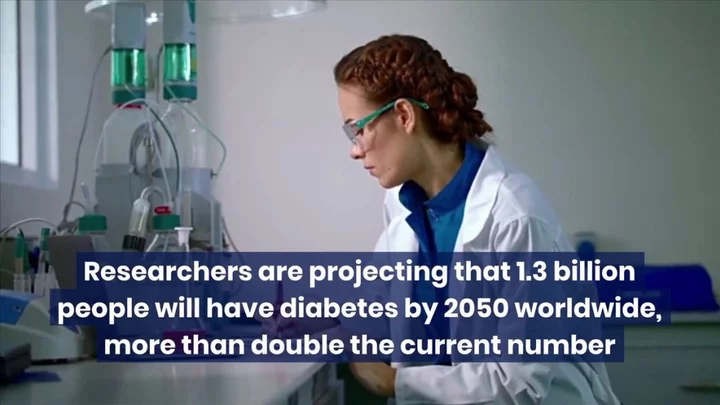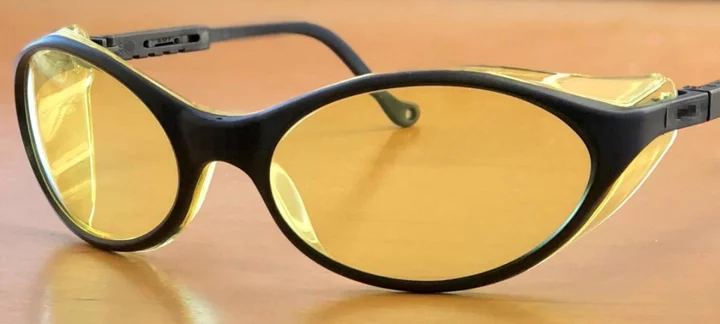
Maui Fire Lays Bare Utility Missteps Mirrored Across the Country
When flames ripped through the drought-parched town of Paradise in 2018, destroying homes and killing 85 in California’s
2023-08-20 03:47

US Warns Space Industry of Growing Risks of Spying and Satellite Attacks
The US intelligence community is warning the domestic space industry of the growing risk of espionage and satellite
2023-08-19 03:51

Scientists discover that neanderthals were getting high on psychedelics millions of years ago
Neanderthals liked to unwind after a hard day’s work hunter gathering by consuming psychoactive drugs, a new study has found. A discovery of human hair strands at a burial site in Menorca, Spain has given us evidence of drug use in prehistoric times. Research was put forward in a new study published in the journal Scientific Reports, and they shine new light on drug use throughout history. The findings uncovered a number of different alkaloid substances which came from nightshade plants. They contain scopolamine and atropine which can cause hallucinations and out-of-body experiences, while ephedrine is a stimulant. The cave also contained boxes patterned with psychedelic decorations, which could well have been decorated while neanderthals were under the influence. Elisa Guerra-Doce is an associate professor of Prehistory at the University of Valladolid and lead author of the study. Guerra-Doce told The New York Times: "These findings are so singular. "Sometimes when people think about drugs, they think it's a modern practice. These results tell a different story." Ethnobotanist Giorgio Samorini, who wasn’t involved in the study, also told the publication: "This was not a profane purpose of 'searching for a high' but more generally the search for existential meaning that has been largely lost to time.” Sign up for our free Indy100 weekly newsletter Have your say in our news democracy. Click the upvote icon at the top of the page to help raise this article through the indy100 rankings.
2023-08-18 21:23

Study finds that divorced diabetic men have higher risk of amputation
Divorced men with diabetes are at the highest risk of having some or all of their feet and legs amputated because of it, research has found. According to a study of almost 67,000 people with diabetes in Sweden, people with the condition who are divorced are 67 per cent more likely to have to undergo a lower limb amputation than those who are married. Meanwhile men are at 57 per cent greater risk than women. On average, 184 people a week in England have some part of a lower limb removed surgically to stop infection spreading and killing them. Lasantha Wijesinghe, a consultant vascular surgeon in England who performs lower limb amputations, said they were usually necessary because the person’s life was at risk because of sepsis. The authors of the study, which has not been peer-reviewed yet, said they could not be sure why divorcees of both sexes ran such a greater risk than married people, but speculated that this “may be due to a change in self-care and food habits observed in people when they divorce and are more likely to be living alone”. “Specifically with men, this is often related to more social isolation, with a secondary effect of low physical activity,” they added. Older people are also at higher risk of an amputation and patients who are on insulin treatment, have a pre-existing foot condition such as neuropathy or who smoke are also at higher risk. The study also concluded that obese people have a lower risk than those with a standard weight. The authors could not explain this finding but suggested it could be down to chance. Dr Faye Riley, the research communications manager at Diabetes UK, said: “This study identifies a range of factors that may be linked with a higher risk of amputation among people with diabetes, and raises interesting questions about how social support can influence our health behaviours and outcomes. By pinpointing which people with diabetes are most at risk, support can be targeted where it’s most needed.” Sign up to our free Indy100 weekly newsletter Have your say in our news democracy. Click the upvote icon at the top of the page to help raise this article through the indy100 rankings.
2023-08-18 18:45

Study finds popular accessory actually likely makes ‘no difference’ to sleep quality or eye health
Special glasses marketed to filter out blue light likely do not make any difference to sleep quality or eye strain from computer use, according to a new review of studies. Blue-light blocking spectacles have been increasingly recommended, often by optometrists, since the early 2000s. Eye patients are frequently prescribed these lenses in many parts of the world with a range of marketing claims existing about their potential benefits. Some of these claims include that the special glasses may reduce eye strain associated with digital device use, improve sleep quality, and also protect the retina from light-induced damage. However, researchers, including those from the University of Melbourne in Australia, say there is “substantial debate” about whether blue-light filtering spectacle lenses have merit in ophthalmic practice. The research, published in the journal Cochrane Database of Systematic Reviews, assessed data from 17 clinical trials on the benefits offered by these glasses for improving visual performance, providing protection to the retina, and improving sleep quality. The review assessed data from individual studies from six countries, each including five to 156 participants, and the period of time over which the lenses were assessed ranging from less than one day to five weeks. Researchers found that there may be “no short-term advantages” with using blue-light filtering spectacle lenses to reduce visual fatigue associated with computer use, compared to non-blue-light filtering lenses. They say it is also currently unclear whether these lenses affect vision quality or sleep-related outcomes. The research review could also draw no conclusions about any potential effects on retinal health in the longer term. “People should be aware of these findings when deciding whether to purchase these spectacles,” study co-author Laura Downie said. “Our findings do not support the prescription of blue-light filtering lenses to the general population. These results are relevant to a broad range of stakeholders, including eye care professionals, patients, researchers and the broader community,” Dr Downie added. However, scientists said the quality and duration of the individual studies part of the review also needs to be considered. “High-quality, large clinical research studies with longer follow-up in more diverse populations are still required to ascertain more clearly the potential effects of blue-light filtering spectacle lenses on visual performance, sleep and eye health,” Sumeer Singh, another author of the study, said. The potential mechanisms by which these lenses might help with eye strain, sleep, and protecting the retina are also unclear, scientists say. “The amount of blue light our eyes receive from artificial sources, such as computer screens, is about a thousandth of what we get from natural daylight,” Dr Singh said. “Filtering out higher levels of blue light would require the lenses to have an obvious amber tint, which would have a substantial effect on colour perception,” he added. But the new research did not find any consistent reports of adverse side effects from using blue-light filtering lenses. Read More A bed bugs epidemic is sweeping the UK – this is why AI can predict Parkinson’s subtype with up to 95% accuracy, study suggests The return of schedules: How parents can make the most of back-to-school energy
2023-08-18 14:28

Tsunamis 3 times the size of the sun 'could disintegrate' Earth
Scientists have detected huge waves in outer space that measure three times the size of our sun. The waves are being formed on a star system called MACHO 80.7443.1718, found around 169,000 light-years from Earth in the Large Magellanic Cloud. The waves are formed in a similar way to waves on Earth. Just like ones on our planet are formed due to the gravitational pull of the moon, a nearby celestial object stretches the star and causes enormous waves in the system MACHO 80.7443.1718. Experts have studied the star’s unusual behaviour and published a paper in the journal Nature Astronomy. The experts stated that MACHO 80.7443.1718 contains a "heartbreak" star, which is a term they use to describe the way plasma is influenced by the pull of a nearby object to unleash incredible waves of energy. The sheer power of these waves is, itself, difficult to imagine. In fact, just one of them would end life on Earth in an instant. "Each crash of the star’s towering tidal waves releases enough energy to disintegrate our entire planet several hundred times over," MacLeod said. "This heartbreak star could just be the first of a growing class of astronomical objects," MacLeod added. "We’re already planning a search for more heartbreak stars, looking for the glowing atmospheres flung off by their breaking waves." The scale in general is far beyond human comprehension – at least ours, anyway. In fact, the waves of plasma measure around 2.5 million miles above the surface of the primary star – which itself has a radius of 10.4 million miles, around 24 times the size of the sun. Sign up to our free Indy100 weekly newsletter Have your say in our news democracy. Click the upvote icon at the top of the page to help raise this article through the indy100 rankings.
2023-08-17 20:50

Man's legs turn purple in rare Covid complication
The effects of long Covid are still being uncovered by experts, and now doctors have been studying a rare complication that saw a man’s legs turn purple. A new research paper has been released which looks into the case of a 33-year-old man who had been infected with Covid 18 months earlier and experienced difficulties when standing up. His legs would turn purple when he did so, as well as tingling and itching, but things would return to normal when he lay down. The odd condition was diagnosed as POTS dysautonomia. This was determined after his pulse was found to rise to 127 beats per minute when standing, as well as feeling shaky and unsteady on his feet. The paper leads on from previous studies, which detected POTS in 20 people after they developed a Covid-19 infection. According to the new study published in The Lancet, there is "evidence is growing of a link between long Covid and POTS dysautonomia”. The paper’s co-author Dr Manoj Sivan said in a statement: "This was a striking case of acrocyanosis in a patient who had not experienced it before his Covid-19 infection. "Patients experiencing this may not be aware that it can be a symptom of long Covid and dysautonomia and may feel concerned about what they are seeing. Similarly, clinicians may not be aware of the link between acrocyanosis and long Covid." Dr Sivan added: "We need to ensure that there is more awareness of dysautonomia in long Covid so that clinicians have the tools they need to manage patients appropriately." Sign up to our free Indy100 weekly newsletter Have your say in our news democracy. Click the upvote icon at the top of the page to help raise this article through the indy100 rankings.
2023-08-17 17:00

The Iceman Baldeth: New Genome Analysis Shows Ötzi Had Surprising Ancestry—and Male-Pattern Baldness
Ötzi the Iceman may have gone bald in middle age—but hey, at least he had tattoos.
2023-08-16 23:53

Instagram users are not happy with new likes feature
From Twitter being rebranded as X, to Meta who have rivalled this with their new Threads platform, there's been quite a few changes to social media this year. One of those recent changes also includes Instagram’s new-like animation which applies to those who updated the app. It means that when you like something on Instagram, the large heart will then appear in the area where you double-tapped on the photo and then the heart flies upwards off the screen. Of course, when it comes to social media updates, no one is a fan of change and Instagram users made this clear on X, formerly known as Twitter. Here is a compilation of reactions who all shared they weren't happy with the new like update, as one declared the feature "sucks," though this update did result in some amusing memes too: Unfortunately for those who updated the app, there is no way to change the like option back to the original but those who haven't updated Instagram can avoid the new feature if they opt out of auto-updates on Instagram. Sign up to our free Indy100 weekly newsletter Have your say in our news democracy. Click the upvote icon at the top of the page to help raise this article through the indy100 rankings.
2023-08-16 20:20

Quantum Computing Is Years Away. This Startup Says Its Software Can Get There Faster.
A British startup spun out from University College London and the University of Bristol raised £13 million ($16.5
2023-08-16 12:46

Alberta Electricity Prices More Than Double
Electricity prices in Alberta in July more than doubled from a year earlier, climbing to a record high
2023-08-16 01:50

Shipping's Greener Fuel Quest Runs Into Climate Complications
What does going “green” actually mean? For the global shipping industry, it’s a potentially fraught question.Three-and-a-half years ago,
2023-08-15 23:19
